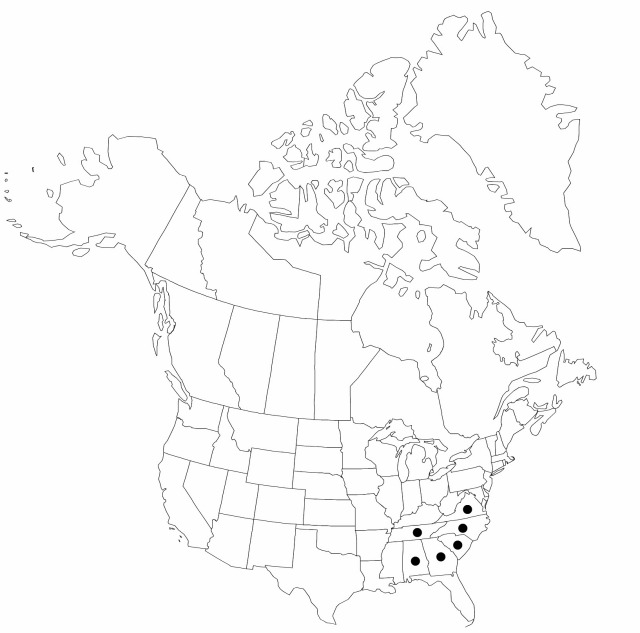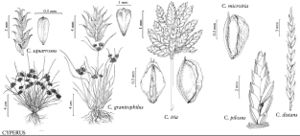Cyperus granitophilus
Castanea 2: 103, figs. 4–8. 1937.
Herbs, annual, cespitose, with roots fibrous. Culms trigonous, glabrous. Leaves V-shaped to flat, (2–)4–11 cm × 3–4 mm. Inflorescences: rays absent; bracts 2–4, ± horizontal, flat, 1–6.5 cm × 2–3 mm; rachilla persistent, wingless. Spikelets 10–40, compressed, ovoid to linear-lanceoloid, quadrangular, 5–9 × 2–3 mm; floral scales deciduous, 5–20, spreading, pale greenish to reddish brown, laterally (5–)7–9(–13)-ribbed, ovate, 3–4 × 1–2 mm, apex straight, excurved mucronate, or cuspidate. Flowers: stamens 1–2; filaments 1.5 mm; anthers 0.8–1 mm, connective apex reddish yellow, less than 0.1 mm; styles 0.8–1 mm; stigmas 1–1.2 mm. Achenes brown to reddish brown, broadly ellipsoid to obovoid, 0.8–1.2 × 0.5–0.6 mm, base ± cuneate, apex truncate-obtuse, surfaces puncticulate.
Phenology: Fruiting summer.
Habitat: Thin soil over outcrops of granite or sandstone of the Piedmont and inner coastal plain
Elevation: 50–400 m
Distribution

Ala., Ga., N.C., S.C., Tenn., Va.
Discussion
Cyperus granitophilus is documented as an autotetraploid derivative of C. squarrosus (L. W. Garoni and W. H. Murdy 1964).
